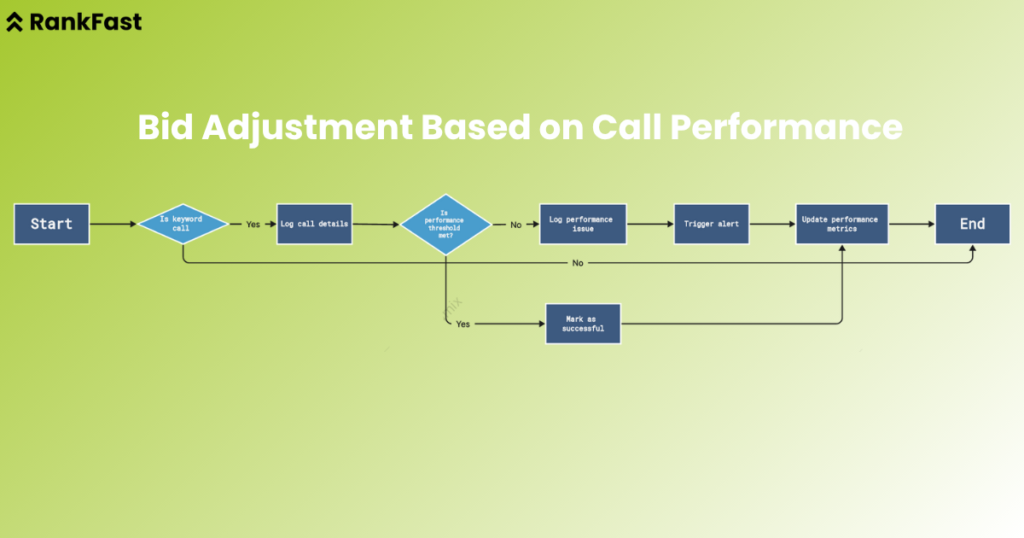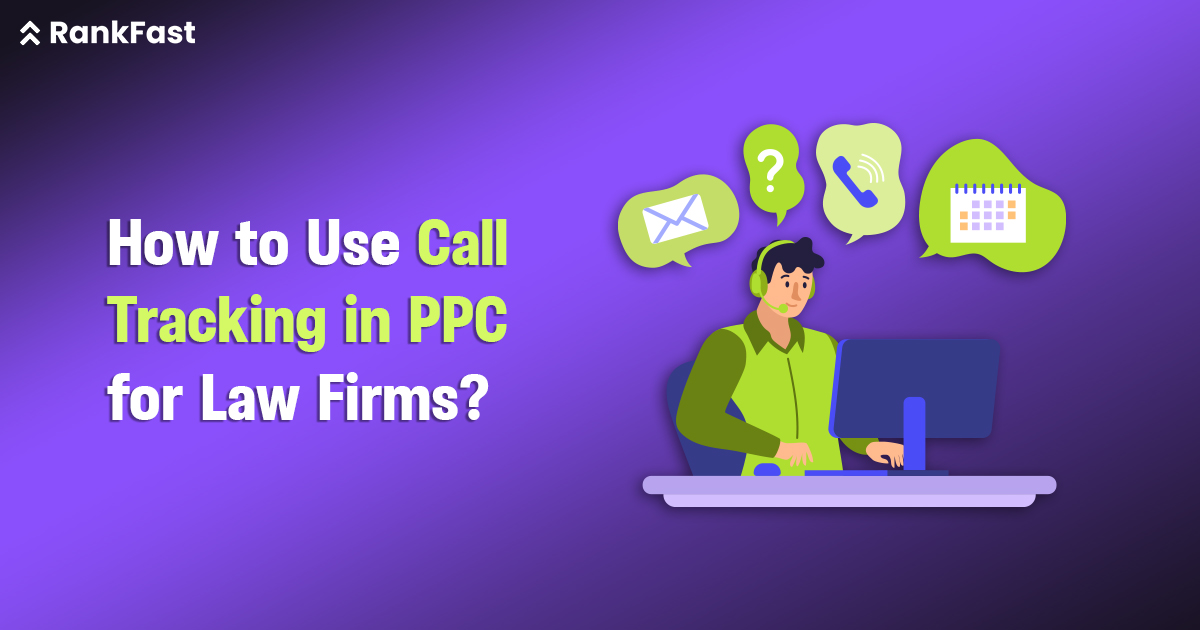Why do law firms pour money into PPC yet miss out on real phone leads? Many rely only on form fills and ignore calls. For legal PPC, calls convert at 2%, twice as effective as form submissions at 1%.
Tracking calls reveals where clients come from. In this blog, we explore how to leverage call data in your PPC campaigns.
What Is Call Tracking in PPC?
Call tracking in PPC for lawyers assigns unique phone numbers to ads or campaigns. These numbers forward to your firm. You track which ads generate calls, their duration, and the caller’s location. With that insight, you know which keywords, ads, or campaigns drive quality calls.
This process uses call-tracking software for attorneys. Examples include CallRail, Invoca, and Ringba. These tools integrate with Google Ads and Google Analytics. They record calls, log caller data, and even record conversions. They help law firms track lawyer ad leads accurately.
Without call tracking, many firms optimize PPC based only on clicks and form fills. That leads them to push ad budgets toward arrivals that never convert. With this system, you focus on actual calls from real prospects. That changes campaign decisions for the better.
Why Call Tracking Matters for Law Firms
Call tracking matters because phone calls bring high-value clients. Clients calling almost always have intent. Firms that understand which ads generate calls can adjust budgets properly.
Track leads like:
- Traffic source (Google Search or Display)
- Keyword or ad copy
- Time of day
- Caller location or area code
This lets you see which campaigns bring the best cases. You can pause the underperforming ones. You can push ads that bring calls worth more than their cost.
Remember, measure ROI from legal ads only when you know where your clients originate. Otherwise, you optimize only halfway. With phone leads tracked, law firms shift from guesswork to data-driven decisions.
How to Set Up Call Tracking in PPC Campaigns
- Choose call tracking software
Compare features and pricing. Pick one that integrates with Google Ads. - Generate tracking numbers
Assign numbers to ad groups or keywords. Use dynamic number insertion to swap numbers in real time on your site. - Connect with PPC accounts
Link the tracking tool to Google Ads and Analytics. Enable call tracking and import call data as conversions. - Setup conversion actions
Define a call as a conversion. Set criteria like “caller spoke at least 30 seconds.” - Tag campaigns properly
Label campaigns using tracking numbers to avoid confusion.
After setup, test by clicking ads and calling. Confirm calls appear in your software and in Ads or Analytics. This ensures data accuracy before you adjust budgets.
What Metrics Should Law Firms Track?
Tracking calls in PPC means more than volume. Focus on quality data that drives decisions:
| Metric | Definition | Why It Matters |
| Call Volume | Total calls per campaign or ad | Shows top performing ads |
| Call Duration | Average length of calls | Longer calls often signal serious clients |
| Conversion Rate from Calls | Calls divided by ad clicks | Evaluates ad effectiveness at generating calls |
| Call Source | Keyword, ad, or campaign that triggered the call | Helps optimize campaigns |
| Cost per Call (CPC) | Ad spend divided by number of calls | Measures cost efficiency |
Track these weekly. Look for campaigns with low CPC but high call quality. Adjust bid strategy accordingly. Pause ads with high spend but low call results.
Optimizing PPC Campaigns Using Call Tracking Data

Once call tracking is in place, use insights to optimize:
- Adjust bids on keywords generating high-quality calls.
- Add time-based bid adjustments: increase bids during office hours.
- Refine ad copy to emphasise phone contact: “Call now for a free consultation.”
- Use call-only campaigns targeting high-intent keywords like “family lawyer near me.”
- Pause low-performing terms that spend but don’t generate calls.
- A/B test landing pages: compare “Request a call back” vs “Submit a form + call button” options.
Every change must be followed by reevaluation. Let data guide you toward better ROI, not assumptions.
Compliance and Ethical Considerations for Law Firms
Tracking calls means handling sensitive information. You must follow client confidentiality rules and advertising regulations.
Law firms should:
- Record calls only after notifying callers
- Store recordings securely
- Delete or archive after the required retention period
- Clearly disclose tracking policies in privacy statements
Compliance builds user trust and avoids legal penalties. It also lifts campaign transparency and legitimacy.
Common Mistakes to Avoid
- Using a single phone number across all ads. That hides campaign performance.
- Ignoring short calls: Even brief calls may convert. Analyse their outcomes.
- Not integrating with Google Ads. Then the call data won’t reflect in key metrics.
- Setting wrong conversion time thresholds, leading to under-reporting.
- Skipping regular audits: tracking numbers and tags can break over time.
Watch your metrics weekly. Confirm the call log is correct. Update your tracking tags after major campaign changes.
Final Thoughts
Call tracking software for attorneys transforms your PPC strategy from blind clicks to clear leads. With call data in hand, law firms can optimize ads, reduce waste, and improve ROI. It brings clarity, not just assumptions.
We help firms build legal PPC call tracking at Rankfast. We track, analyse, and optimize, so you focus on serving clients.
FAQs
1. What is legal PPC call tracking?
It’s a method to assign unique phone numbers in ads and measure which campaign drove each call.
2. How much does call tracking cost?
Basic systems start at ₹2,000–₹5,000 per month, depending on features and volume.
3. Can I track call quality?
Yes. You can score calls based on duration, outcome, and keyword source.
4. How does call tracking improve ROI?
It shows which ads generate real clients, enabling budget focus where it counts.
5. Is call tracking software for attorneys secure?
Yes. Good tools comply with legal privacy laws, record with consent, and encrypt stored data.

Leave a Reply